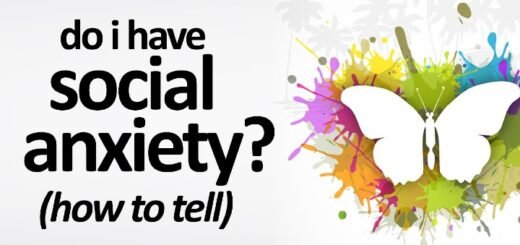Identifying Social Phobia in New Zealand’s Children
Social phobia, or social anxiety disorder, is a significant mental health issue affecting children in New Zealand. Understanding its signs and symptoms is crucial for parents and educators to provide support and create a nurturing environment. Children with social phobia may exhibit excessive shyness, fear of judgment, or avoidance of social situations, which can hinder their development and overall well-being. Recognizing these signs early can pave the way for effective interventions and strategies to help them thrive.
Overcoming social phobia requires a collaborative approach that includes understanding the unique challenges faced by Kiwi children. Resources like the guide on understanding social phobia in Kiwi children offer valuable insights into addressing these issues. By fostering open communication and empathy, we can work together to support children in overcoming social anxiety, enabling them to engage confidently with their peers and communities.
Understanding Social Phobia: An Overview
Social phobia, also known as social anxiety disorder, is a condition characterized by an intense fear of social situations where one may be judged or scrutinized by others. In New Zealand, this issue affects many children, manifesting in various ways. Children with social phobia may experience overwhelming fears about speaking in class, attending social gatherings, or even interacting with peers. Understanding the roots and signs of this condition is essential for parents and caregivers.
Children may display physical symptoms such as sweating, trembling, or rapid heartbeat when faced with social interactions. These reactions can lead to avoidance behaviors, where children opt out of situations that provoke anxiety. This avoidance can hinder their social development and academic performance, leading to further isolation. For more detailed information on social phobia in New Zealand, visit this resource, which offers insights into recognizing and addressing these challenges.
Signs of Social Phobia in Children
Identifying social phobia in children can be tricky, especially since many children experience shyness at some point. However, there are specific signs that can indicate a deeper issue. One common sign is excessive worry about upcoming social interactions. For instance, a child might fret for days before a birthday party or school presentation, fearing embarrassment or scrutiny.
Other indicators include physical symptoms such as stomachaches or headaches that appear before social situations. It’s not uncommon for children with social phobia to exhibit extreme reluctance to participate in group activities or to make new friends. They may often seek to stay close to a parent or guardian in unfamiliar settings. Understanding these signs is crucial for timely intervention and support. Overcoming social anxiety often requires professional guidance, and resources like SocialPhobia.org.nz can provide valuable information for families seeking help.
Impact of Social Phobia on Daily Life
The effects of social phobia can permeate various aspects of a child’s life, from academic performance to personal relationships. Children may struggle in school, finding it challenging to participate in class discussions or group projects. This can lead to a decline in grades and an increased sense of isolation.
Social phobia can also strain friendships. Children may avoid playdates or after-school activities, leading to feelings of loneliness. This lack of social interaction can hinder the development of essential communication skills, further perpetuating the cycle of anxiety. Encouraging children to gradually face their fears, in a supportive environment, can aid in overcoming social challenges. For more tips and strategies, explore resources available on SocialPhobia.org.nz, dedicated to helping families navigate these issues.
Common Triggers of Social Phobia in New Zealand Children
Different factors can trigger social phobia in children, and understanding these can help parents provide appropriate support. Common triggers may include school presentations, meeting new people, or participating in group activities. In New Zealand, cultural factors can also play a role, such as expectations around social interactions in schools or community events.
Additionally, children who have experienced bullying or negative social experiences may be more susceptible to developing social phobia. It’s important to recognize these triggers and address them appropriately. Encouraging open conversations about fears and anxieties can help children feel more comfortable discussing their feelings. Resources like SocialPhobia.org.nz provide guidance on how to create a supportive environment at home and school, aiding in the process of overcoming social anxiety.
Seeking Professional Help: When to Act
When a child’s social phobia significantly interferes with their daily life, seeking professional help is crucial. Signs that intervention is necessary include persistent avoidance of social situations, severe anxiety that disrupts normal functioning, or academic decline. Professionals such as child psychologists or counselors specializing in anxiety disorders can provide tailored support and coping strategies.
In New Zealand, various services offer support for children dealing with social phobia. Engaging in therapy can help children learn practical skills for managing anxiety, such as cognitive-behavioral techniques that focus on changing negative thought patterns. For more information about available resources and how to access them, visit SocialPhobia.org.nz, which provides a wealth of information on overcoming social anxiety.
Encouraging Social Skills Development
Building social skills is an essential part of helping children overcome social phobia. Parents and caregivers can facilitate this by creating opportunities for children to practice social interactions in low-pressure settings. Activities such as joining clubs, participating in team sports, or engaging in community events can provide valuable experiences.
In New Zealand, local community centers often run programs designed to foster social interaction among children. Encouraging your child to attend these events can help them gradually build confidence. Additionally, role-playing different social scenarios at home can prepare children for real-life interactions. For strategies on promoting social skills, consult resources like SocialPhobia.org.nz, which offers practical tips for parents navigating these challenges.
Long-Term Strategies for Overcoming Social Phobia
Overcoming social phobia is a journey that requires patience and consistent effort. Implementing long-term strategies can significantly help children manage their anxiety. Regular practice of relaxation techniques, such as deep breathing or mindfulness, can be beneficial. Encouraging children to set achievable social goals can also foster a sense of accomplishment.
Additionally, fostering a supportive environment at home is vital. Open discussions about fears and feelings can help children feel less isolated in their experiences. It’s important to celebrate small victories, such as initiating a conversation or attending a social event, to boost their confidence. For more resources and strategies on overcoming social anxiety, explore SocialPhobia.org.nz, which provides ongoing support for families facing these challenges.
FAQs
What is social phobia in children?
Social phobia, also known as social anxiety disorder, is a condition where children experience intense fear and anxiety in social situations. This can lead to avoidance of interactions, particularly in settings like school or gatherings, impacting their ability to form friendships and participate in activities.
What are the common signs of social phobia in children?
Common signs include excessive worry about being judged or embarrassed, physical symptoms like sweating or trembling in social situations, avoidance of eye contact, and a strong reluctance to engage in group activities. Children may also express fears about speaking in front of others or attending parties.
How can parents identify if their child has social phobia?
Parents can look for consistent patterns of anxiety in social settings, such as crying, tantrums, or withdrawal when faced with social interactions. If these behaviors persist and interfere with daily life, it may indicate the presence of social phobia.
What are the potential causes of social phobia in children?
Social phobia can arise from a combination of genetic, environmental, and psychological factors. Children may have a family history of anxiety disorders, experience negative social interactions, or face significant life changes that contribute to the development of social anxiety.
How can social phobia affect a child’s daily life?
Children with social phobia may struggle in school, avoid extracurricular activities, and find it hard to make friends. This can lead to feelings of isolation and low self-esteem, making it important for parents to address these challenges early on.
What are effective strategies for overcoming social phobia in children?
Effective strategies include therapy, such as cognitive-behavioral therapy (CBT), which helps children understand and manage their anxiety. Gradual exposure to social situations, building social skills, and parental support can also play significant roles in overcoming social phobia.
When should parents seek professional help for their child’s social phobia?
Parents should seek professional help if their child’s anxiety significantly interferes with their daily life, such as impacting their school performance or social relationships. Early intervention can be crucial in helping children overcome social phobia and develop coping strategies.
References
- Understanding Social Phobia New Zealand – A dedicated resource providing information about social phobia, its signs, symptoms, and resources for children and families in New Zealand.
- Understanding Anxiety Disorders in Children – An informative guide from the New Zealand Ministry of Health detailing various anxiety disorders, including social phobia, and their impact on children’s well-being.
- Social Anxiety Disorder – A comprehensive overview of social anxiety disorder, including signs, symptoms, and management strategies, specifically tailored for the New Zealand context.
- Mental Health for Children and Young People – A resource from KidsHealth that covers various mental health issues, including social phobia, aimed at parents and caregivers.
- What is Social Anxiety and How Can I Help My Child? – An article from Te Papa that explains social anxiety in children and offers practical advice for parents on how to support their children.




